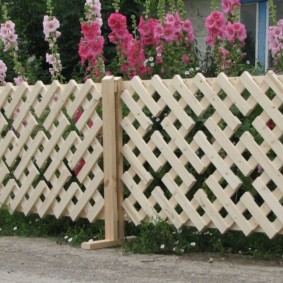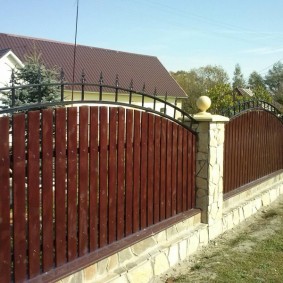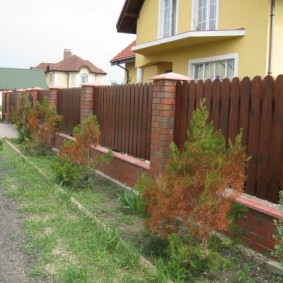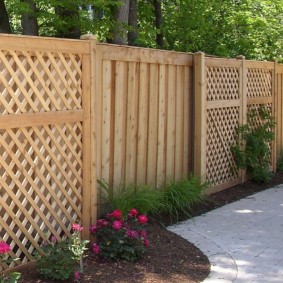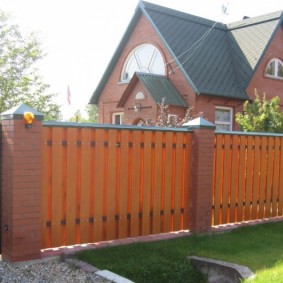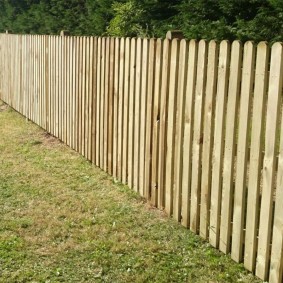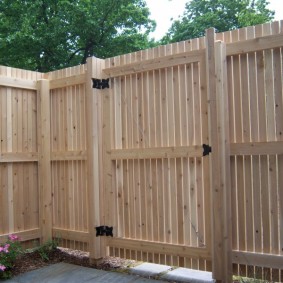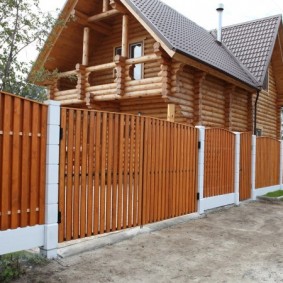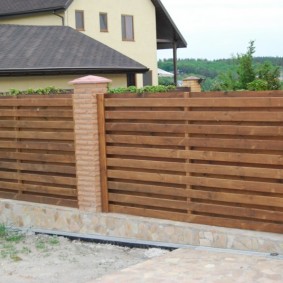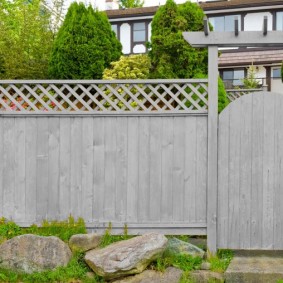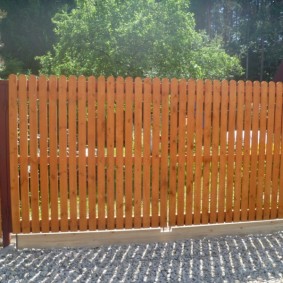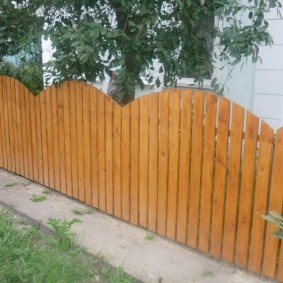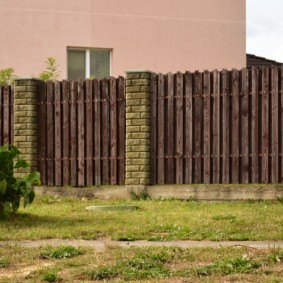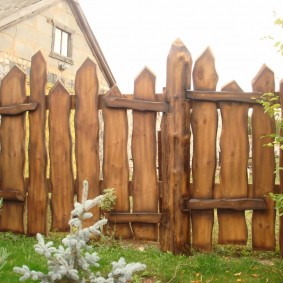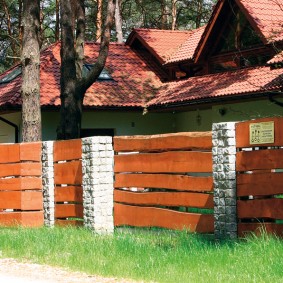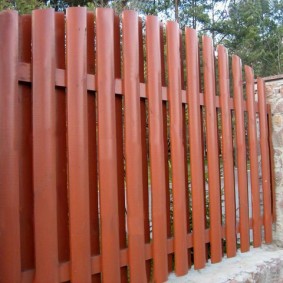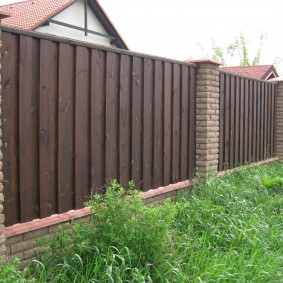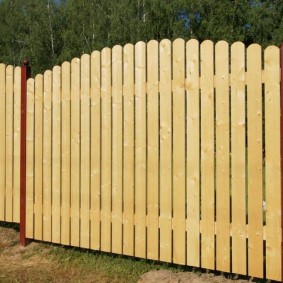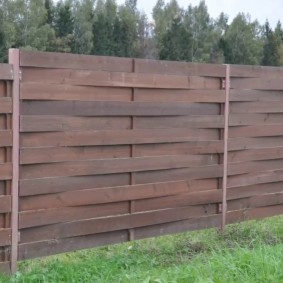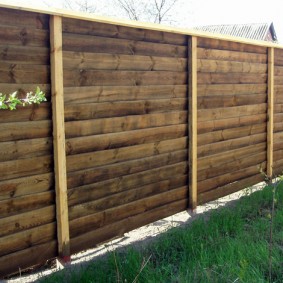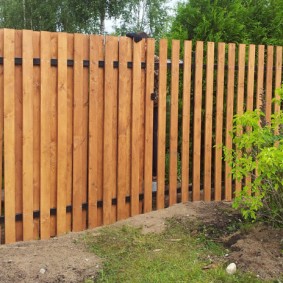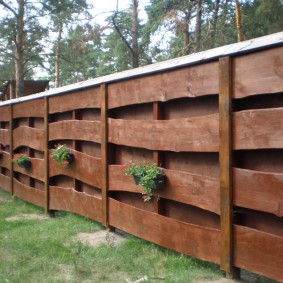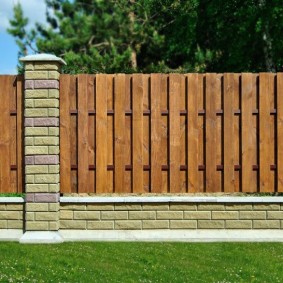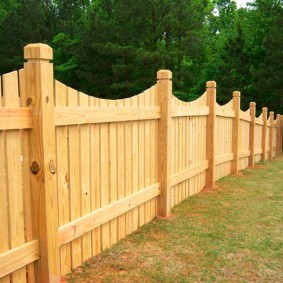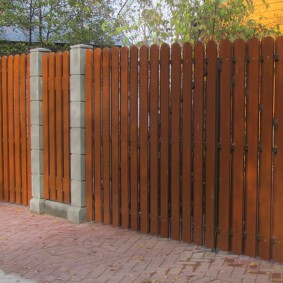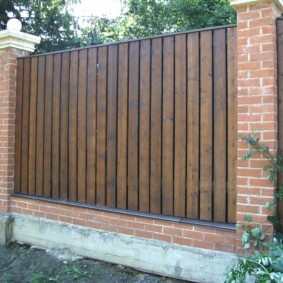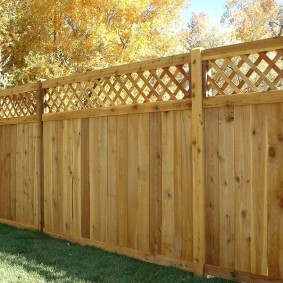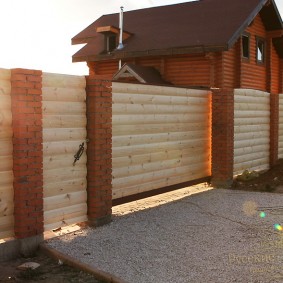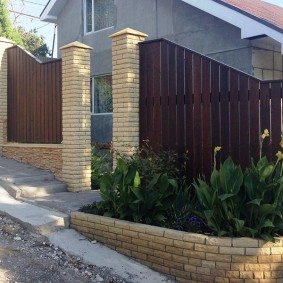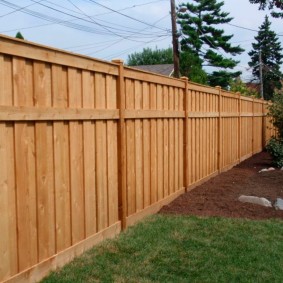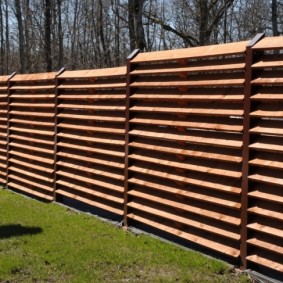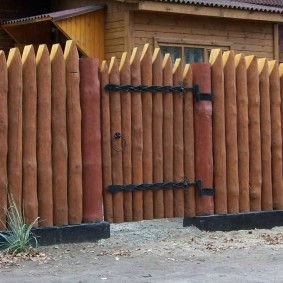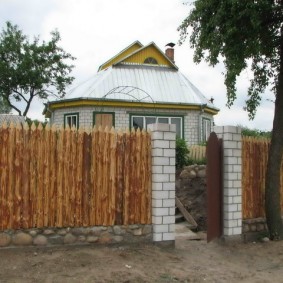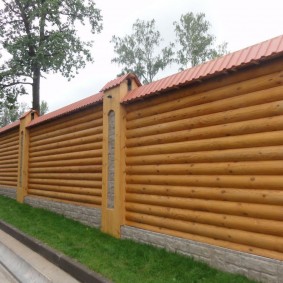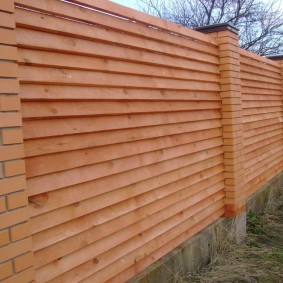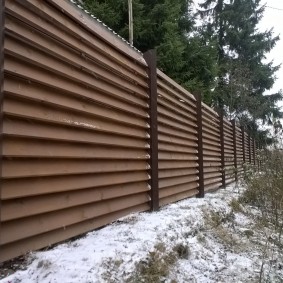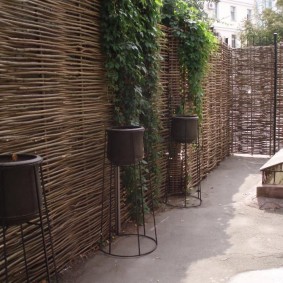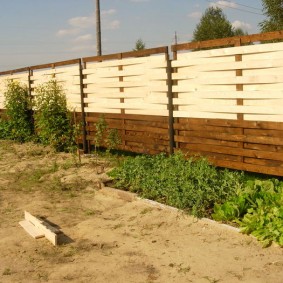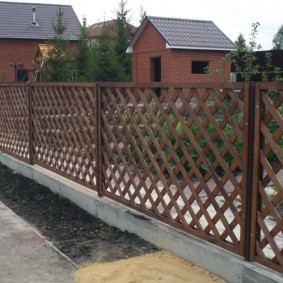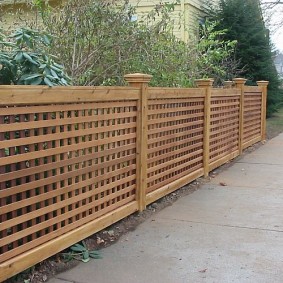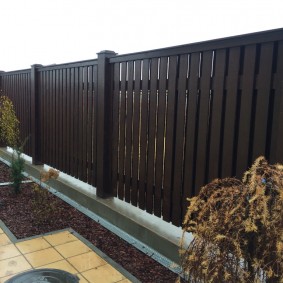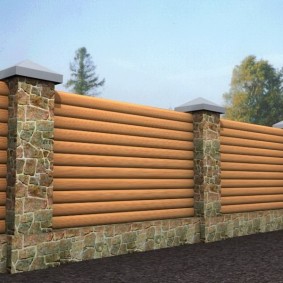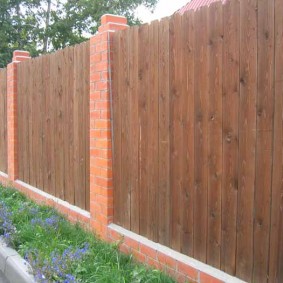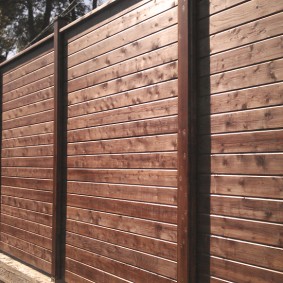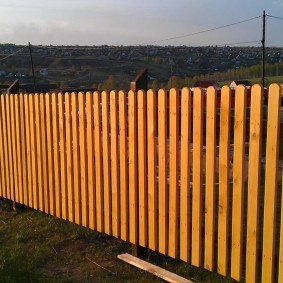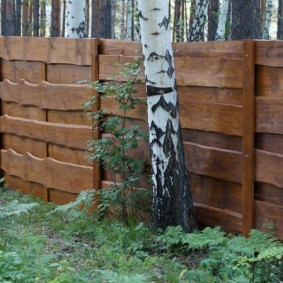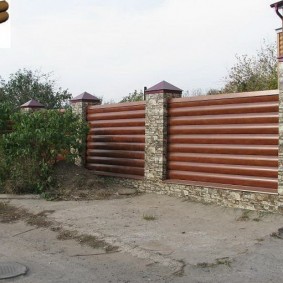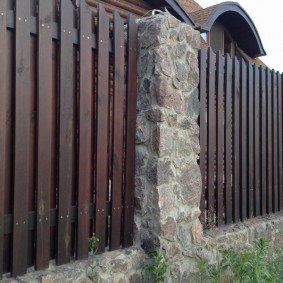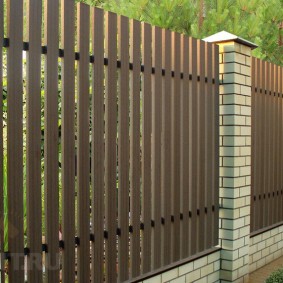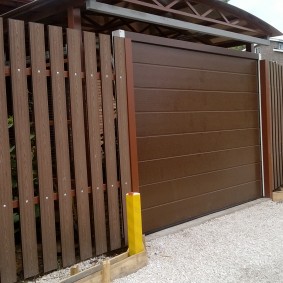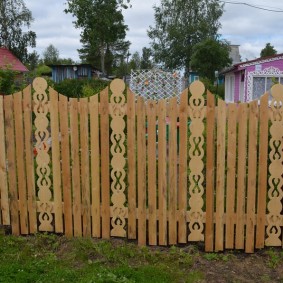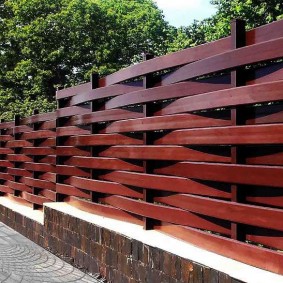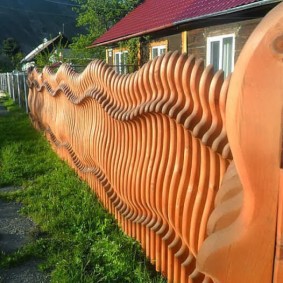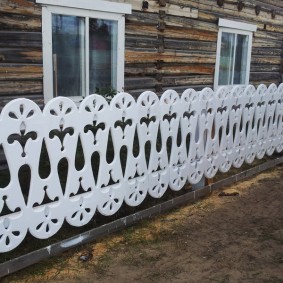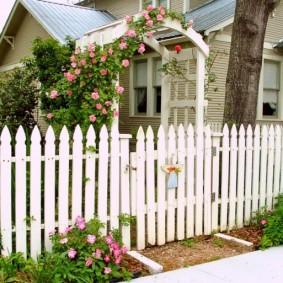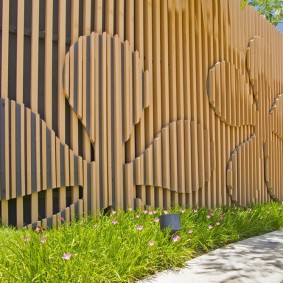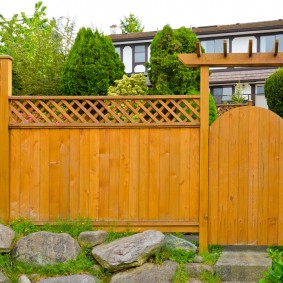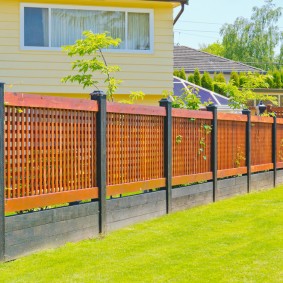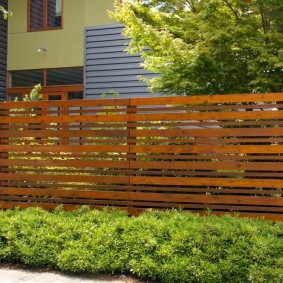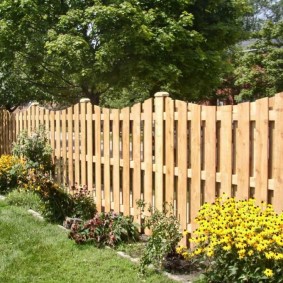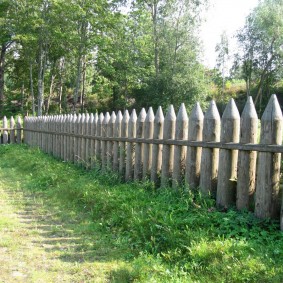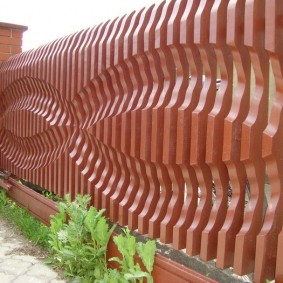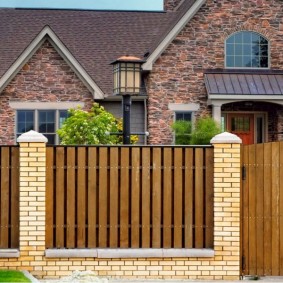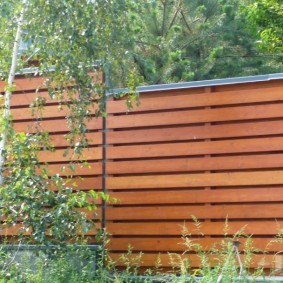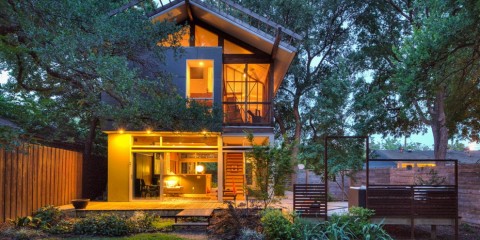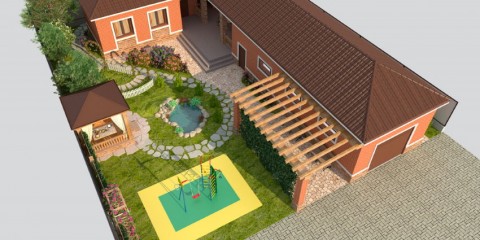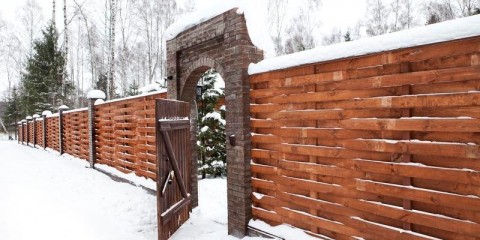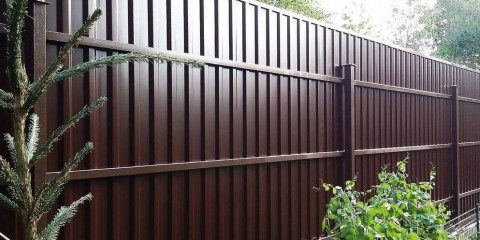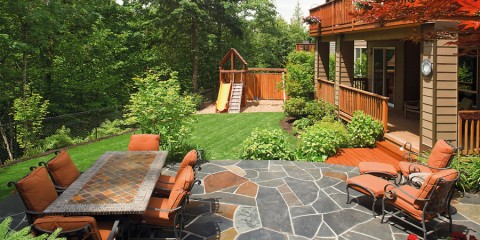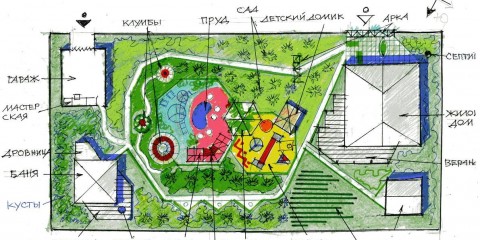 Landscape design
On the layout of the plot on 12 acres - landscape design options
Landscape design
On the layout of the plot on 12 acres - landscape design options
To protect a private house, an object, its owners often build a fence from planks. Natural, carefully crafted wood gives comfort and looks luxurious. Untreated wood structures allow you to "put together" a fence in a matter of hours - no special skills are needed for this.
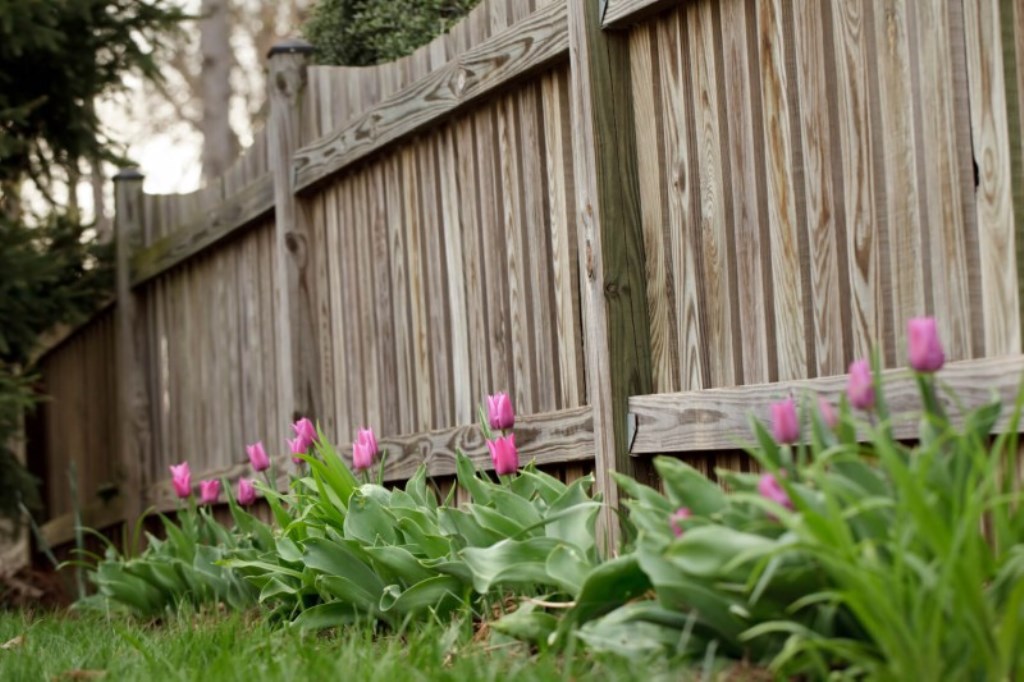
Wooden fences among the owners of summer cottages are extremely popular.
Wood in the construction of fences: advantages and disadvantages
Content
- Wood in the construction of fences: advantages and disadvantages
- Types of fences: front, decorative, simple
- What boards are used to mount the fence
- Unedged board: definition, types
- Photo examples of suitable types of wood
- A selection of ideas, photo fencing from boards
- Conclusion
- VIDEO: Variants of beautiful wooden fences.
- 50 original design ideas for wooden fences:
Natural wood used in the construction of fences has the following advantages:
- the product comes out environmentally friendly, as it is entirely made of natural material that does not harm the environment;
- such a fence is simple to manufacture, easy to install with your own hands, and details can be given to almost any shape;
- polished, painted product has a beautiful appearance;
- it is possible to install parts as you like - horizontally, vertically, at an angle, in a checkerboard pattern;
- it is permissible to use edged, unedged boards, timber, slabs, parts of various widths and lengths.
Natural wood also has disadvantages:
- the finished product is not too durable, as it gradually decomposes under the influence of sunlight and precipitation;
- to create a beautiful fence, the wood will have to not only “dissolve” on the board, but also to dry, polish, cut parts;
- without special impregnations, coatings, the fence will not be durable;
- each crack, falling knot, increase the likelihood of breakage of structural parts, and poor drying leads to deformation.
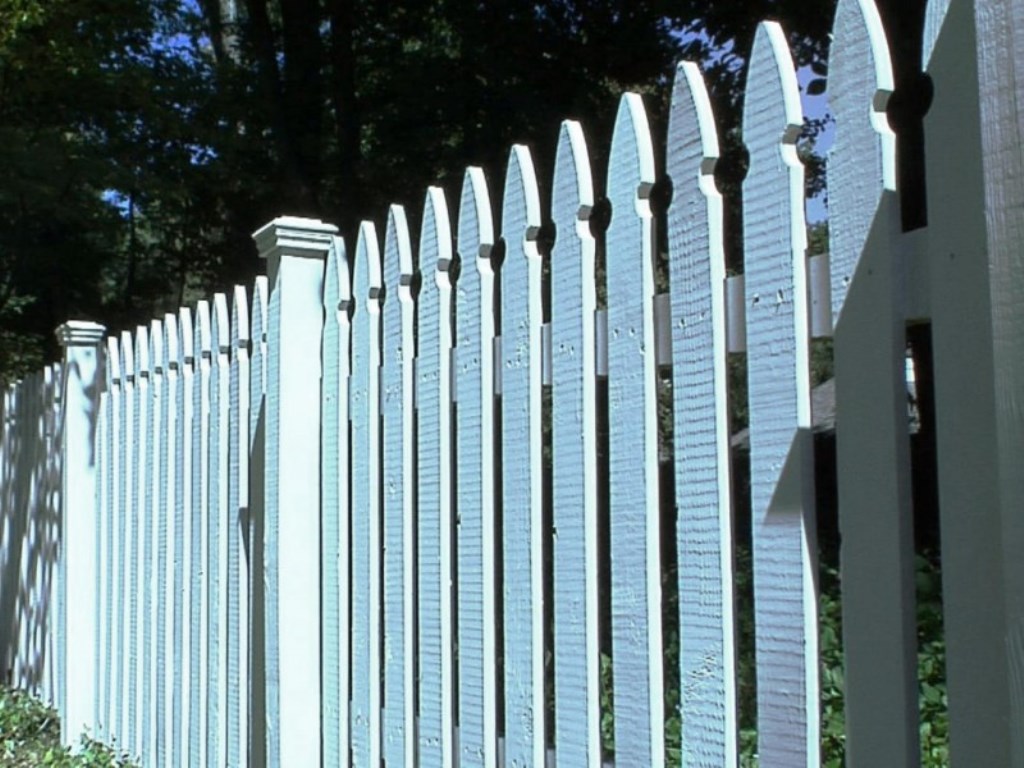
Real connoisseurs understand that natural material is always beautiful, environmentally friendly, modern and stylish.
Advice: for the fence to serve for a long time (up to 20-30 years), the details are impregnated with antiseptics, special paints that protect from the sun, flame retardants, etc.
Types of fences: front, decorative, simple
Fences are divided into three main types:
- Facade - designed to protect the internal territory from prying eyes, unauthorized entry. These are vertical lattice structures or a picket fence, a “ranch” (with horizontal sheathing), ladder options where the boards are overlapped, chess pieces in which the parts are mounted in two rows with an offset, the “stockade” created from pointed pegs, as well as options where planks bound with a strong rope;
- Decorative - usually serve exclusively as decoration, are arranged around flower beds, have a small height. Such fences are made of small boards covered with lime, complemented by various decorations
- Protozoa are usually a fence consisting of logs or stakes stuck in the ground, fastened with boards in the middle or on top. The design is not durable, used as a temporary fence
What boards are used to mount the fence
When choosing a material, pay attention to the thickness of the boards. The most suitable is 18-24 mm. Thicker ones usually cost more, thinner ones break quickly.
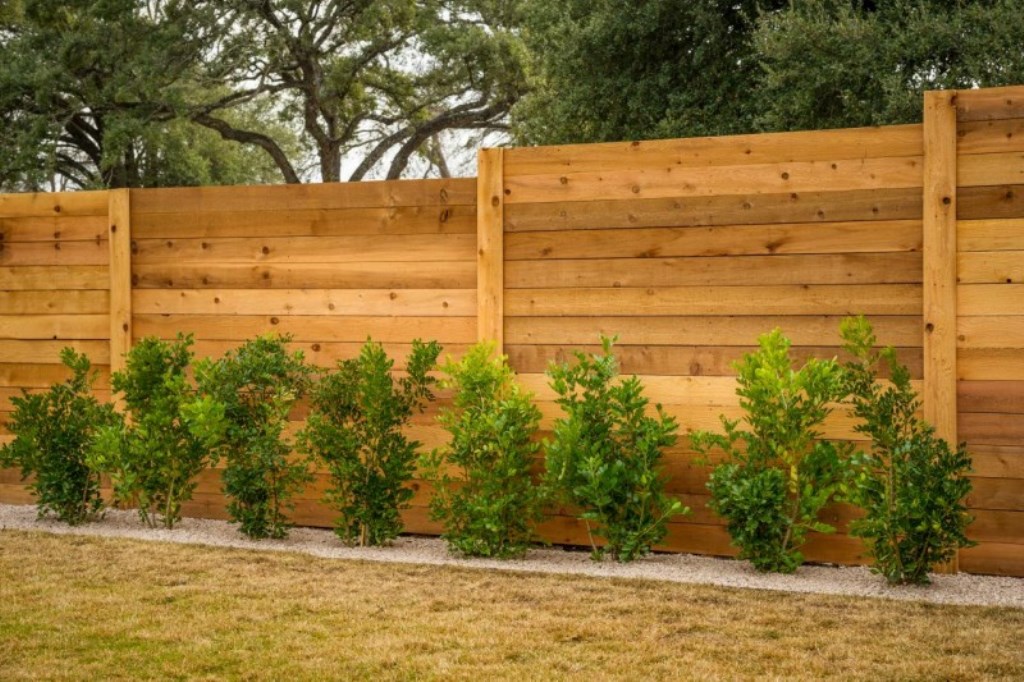
If there is a taste for the owner of the site, a fence made of wood can look expensive and truly spectacular.
Also used:
- Unedged board - a rough product, has uneven edges, parts of the bark.Suitable for temporary constructions where an aesthetic appearance is not important. The material has a low cost, it is sold almost everywhere. It can be used for buildings in the style of country, rustic;
- The croaker is one of the varieties of unedged boards. It has one convex and one flat side;
- Edged board - the most popular option, suitable for all types of fences;
- Sliced board - after processing the edges, it additionally passes through the thicknesser, planer;
- Lining - strips of small thickness, cut with a machine, having protrusions, recesses at the ends, for convenient connection with supports and each other. The fence made of lining is a continuous hopeless fence that needs to be periodically treated with protective compounds so that it serves as long as possible;
- Curly decorative strips - each of them has an unusual shape, is decorated with carvings, the ends are also made curly. The finished structure usually looks like a picket fence;
- Artificially aged boards - are created from unedged boards, by special processing;
- Terrace or deck boards - made of wood flour, modifying substances, polymers. The finished fence is very durable, looks beautiful, original. The parts themselves are made smooth or corrugated;
- Brushed board - its upper layer is “lifted” with a special brush. The construction has a unique texture - annual rings are visible on the surface.
A beautiful edged board fence is the most popular enclosure. It is made solid, smooth or has holes that let in sunlight. The product comes out an order of magnitude more expensive than a fence made of slabs or unedged boards.
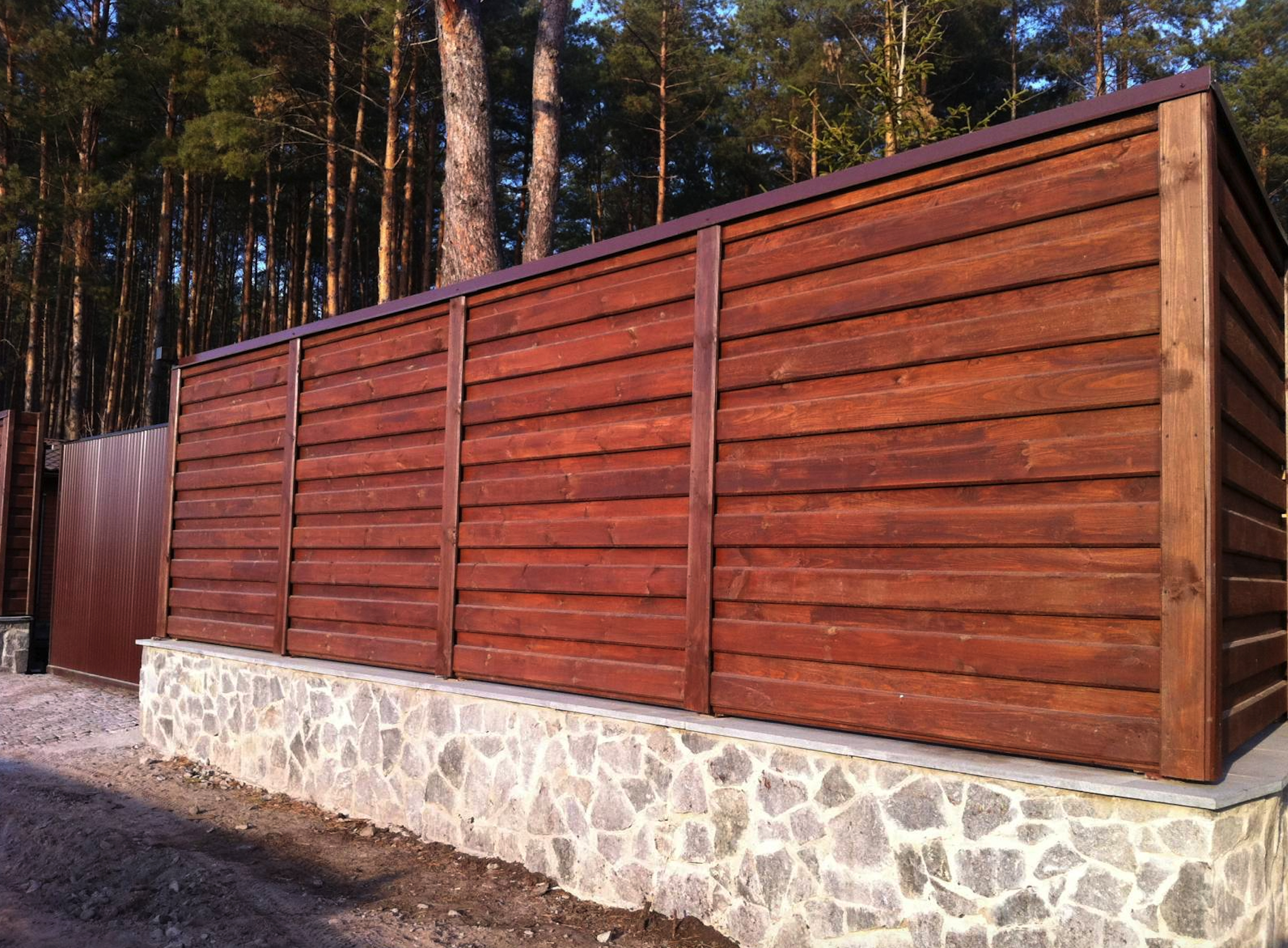
The fencing of the estate is one of the most necessary elements in the garden, regardless of its size.
A fence made of horizontal-laid planks is called an American. It is installed on concrete poles, protected from rain by a visor. The finished design looks very reliable, impregnable, it belongs to the elite version. Boards for it are dried in the factory - only high-quality wood is selected. Such a fence is made of dry cladding boards, mounted in special sections with an overlap and only horizontally. The design does not allow viewing the site from the outside, which should be taken into account if the territory is small, narrow. The average height of the structure is 1.6-2.2 meters, but some owners of luxury mansions build fences and three meters high.
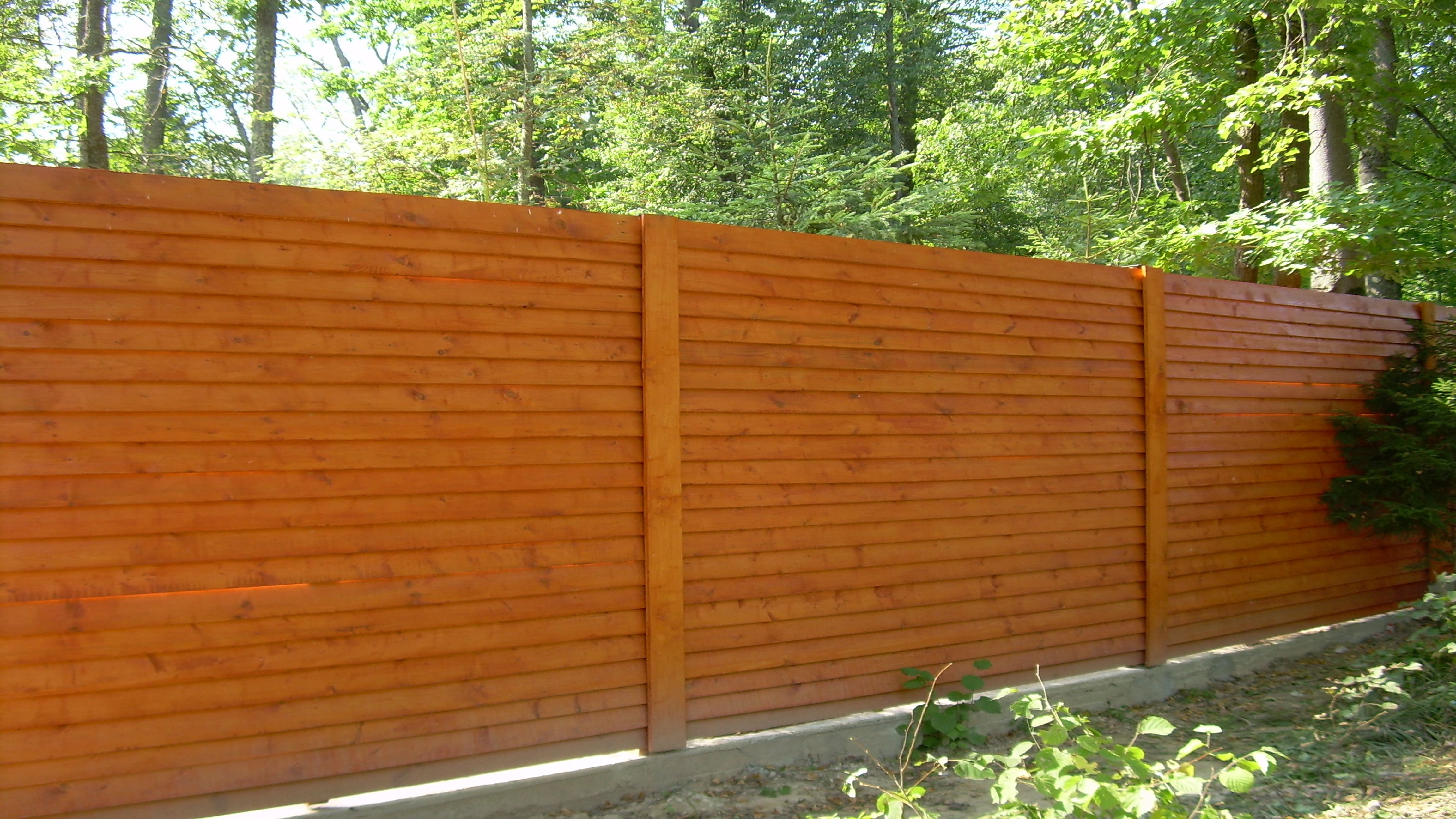
Wood as a raw material is more expensive than profiled sheet, but cheaper than brick or forged metal.
Unedged board: definition, types
Unedged boards are called unrefined, unprocessed or partially processed edges. They cost much less than others, but are also reliable, durable, suitable for use in outdoor conditions, in harsh climates. Such materials are well processed, and the presence of knots and twists here is regarded as a decoration.
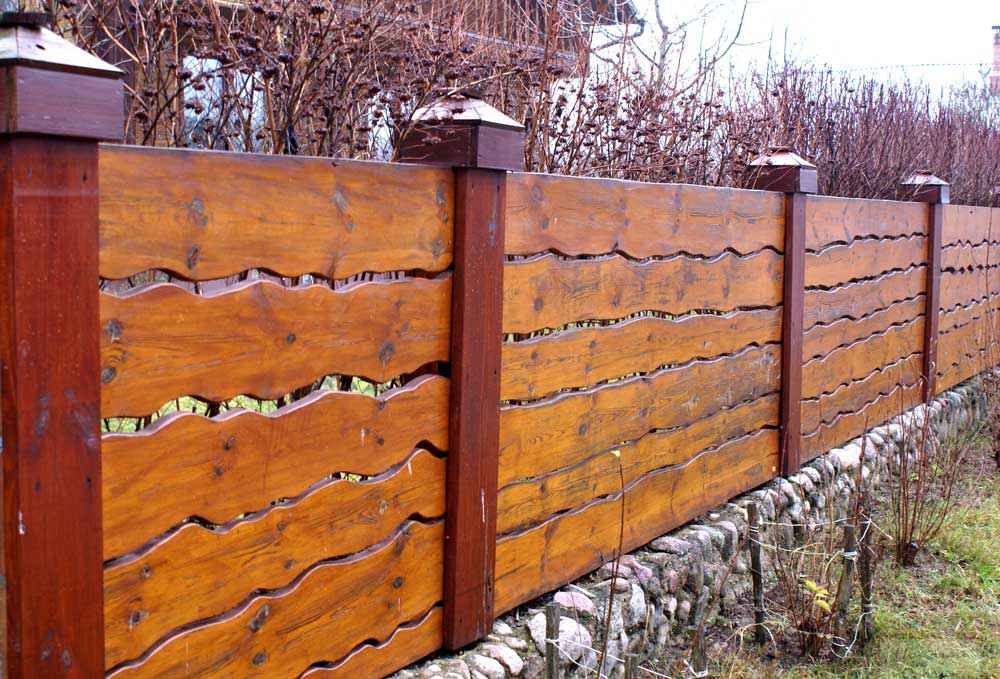
In favor of the choice of this material is evidenced by its property as environmental friendliness.
The main types of unedged boards are fence and carpentry. For the first variety, multiple but not falling knots are permissible, the direction of the fibers changed in some places, slight damage to the material. The second is a better quality raw material, in which there is a minimum of defects, flaws. A lining is made from it, and a finished fence looks much more attractive than a wall made of fence boards.
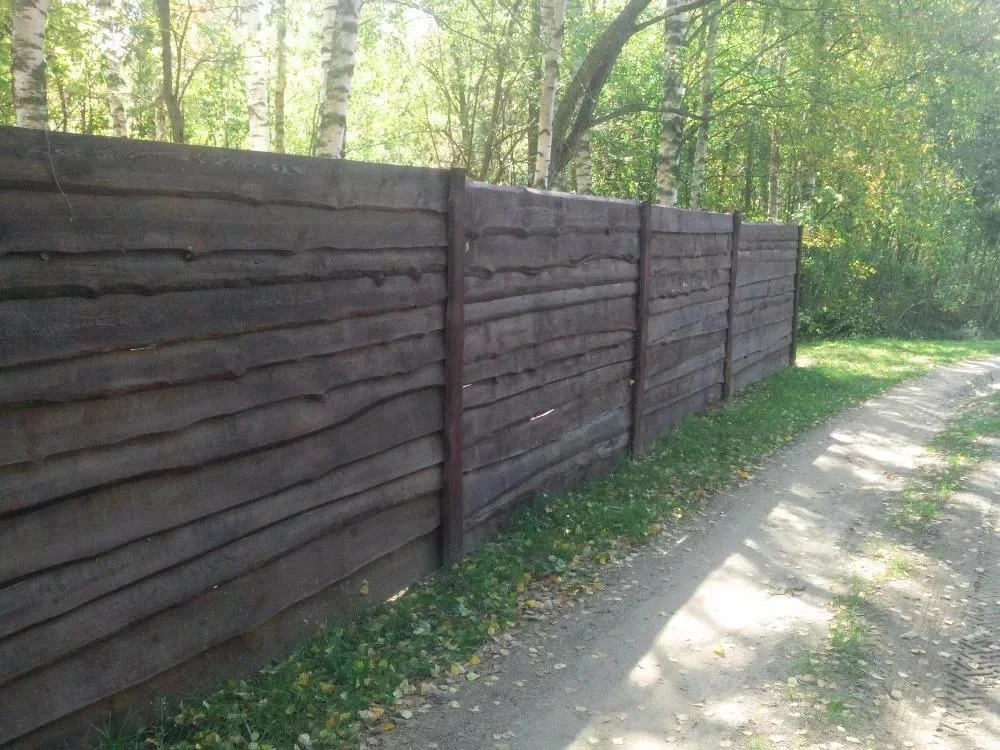
There are special compounds to process and protect the wooden fence from fungus or tree bugs.
For the production of unedged materials, use the second or third cuts of the tree trunk - raw materials of low grade. The thickness of such boards is 25-50 mm., Width - 100-200 mm. or a little more. The main raw materials are pine, spruce (larch is not a cheap material).When buying any kind of unedged boards for the construction of the fence, it is recommended to choose the one with fewer knots - such details are more likely to maintain the correct geometry for a long time, avoiding deformation, cracking. When self-processing, it is unacceptable to use excessively wet, not-dried planks - they will warp during operation. Curved parts are also not suitable for a good fence.
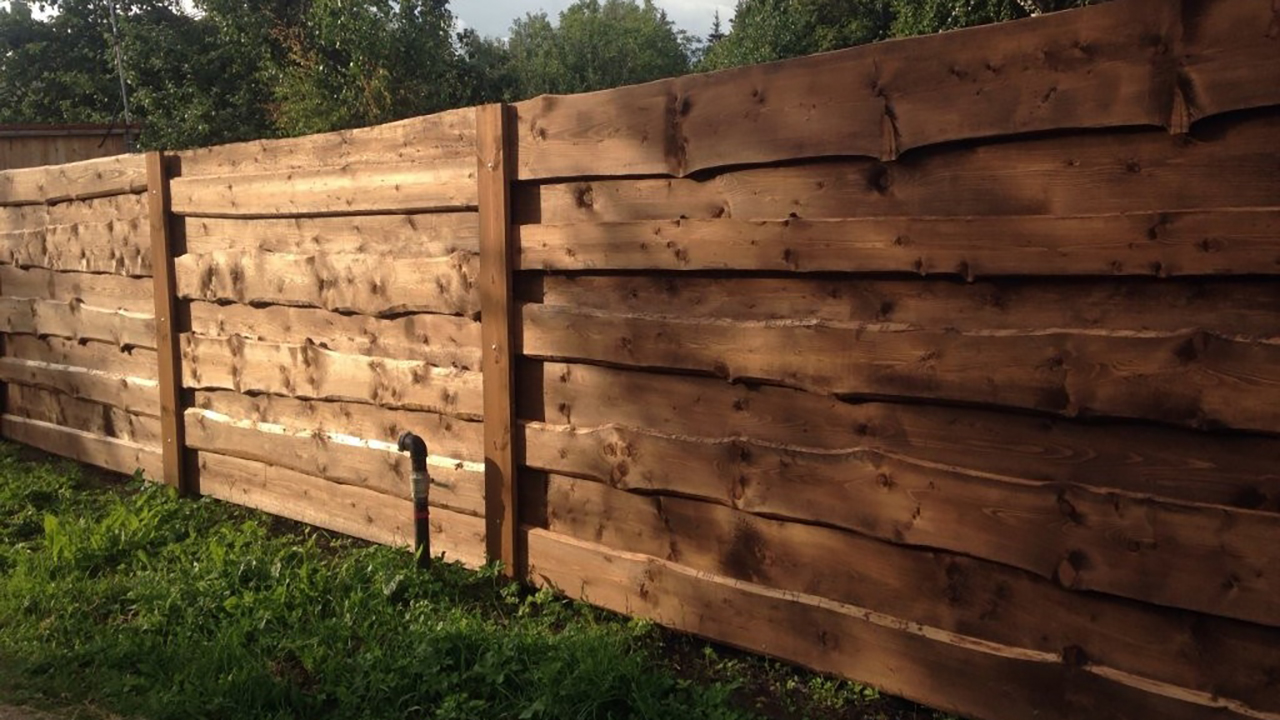
You can cover the structure with varnish, drying oil or a special paint enriched with protective substances.
Unedged board fence is suitable for mixed landscapes, as well as as close to nature. It does not violate the general design of the site, but most often curly ornamental plants are planted along such a structure.
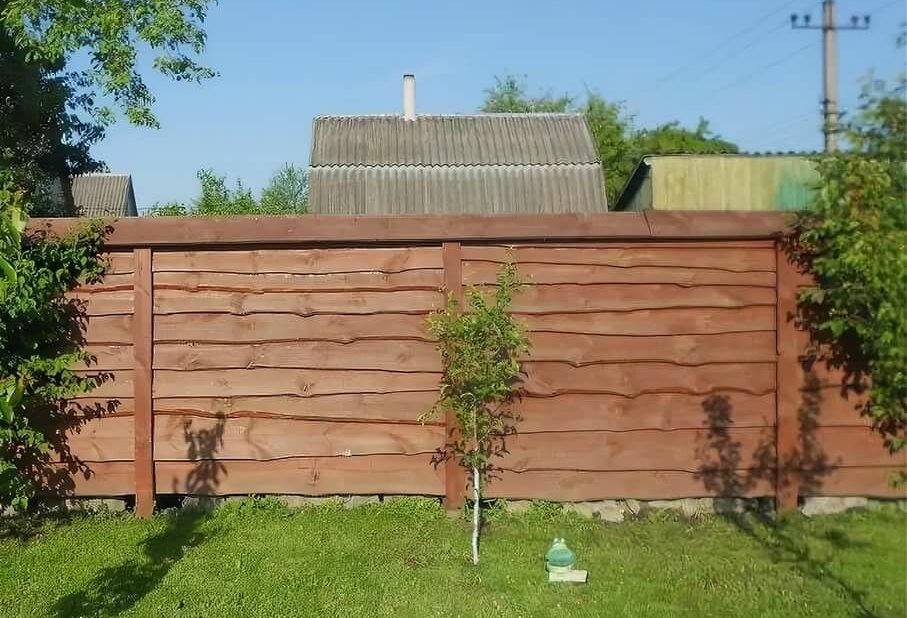
Wood is a natural and environmentally friendly material that does not pollute the environment.
Photo examples of suitable types of wood
Almost any lumber is suitable for creating a fence. These are grades of wood from the first to the fourth, the American lining, etc. The photo shows that the best option is to prefer smooth, even boards without knots, wrinkles, cracks, chips, mold or damage by insect pests.
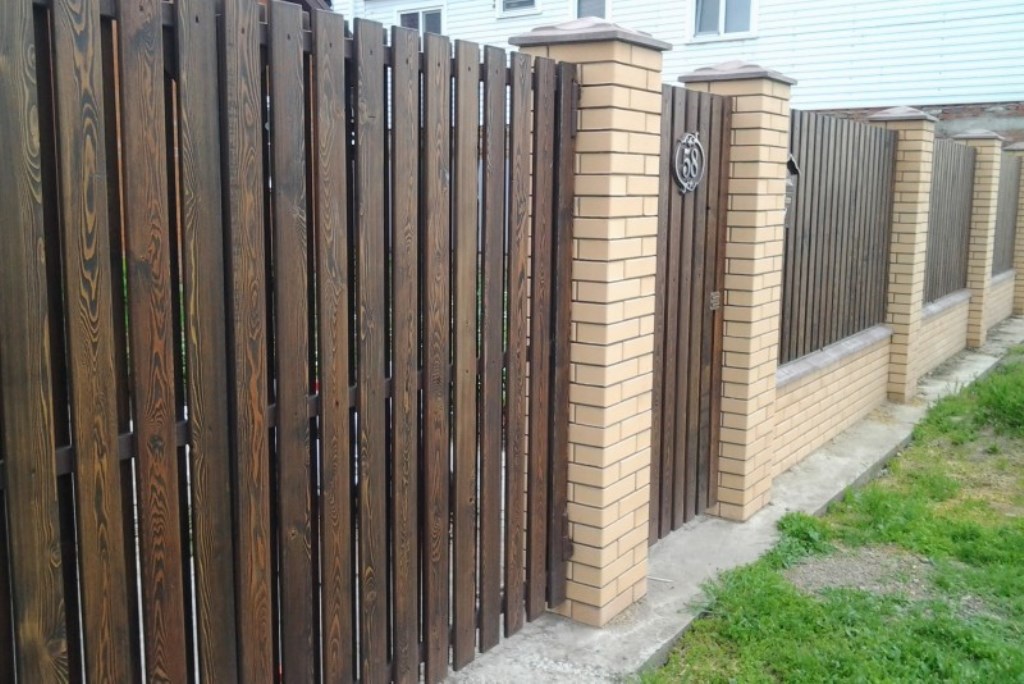
A wooden fence does not require much effort to care for it.
For the construction of the fence, coniferous or expensive hardwood species are preferred - pine, spruce, larch, cedar, beech, bog oak. If it is necessary to reduce the cost of the structure, as well as if its durability is not a priority, the most common hardwood species are used - birch, linden, ash, aspen, etc. Depending on what kind of fencing is required, they use unedged, planed, terrace or other kinds.
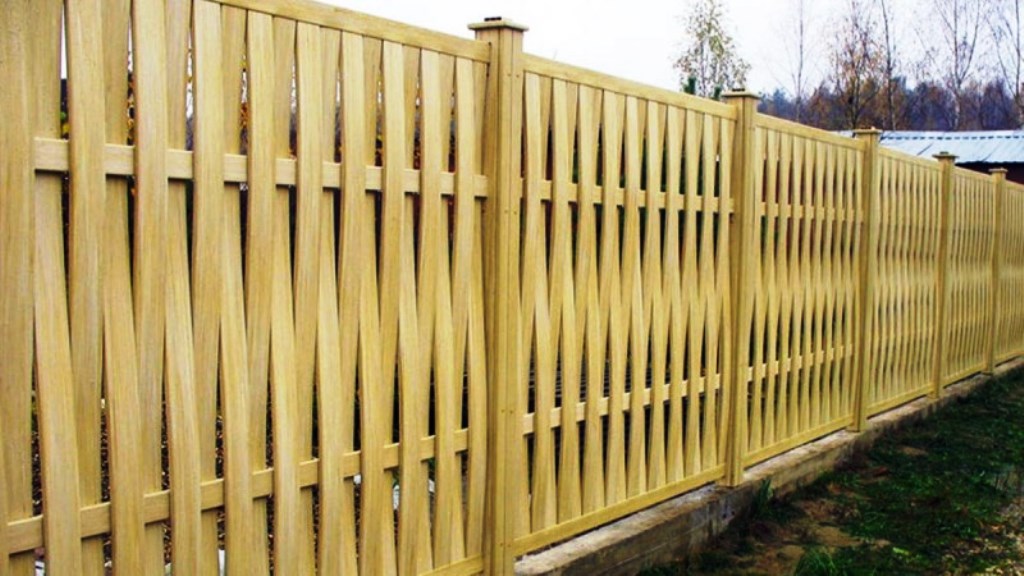
If you choose a strong breed, such as larch, oak or ash, this will increase the life of the fence.
A selection of ideas, photo fencing from boards
The fence from a wide unedged board looks very original, although rude. It is tinted with stain, artificially aged in separate places. Structures from smooth planks are sometimes painted manually or each detail is made in a different color.
The design looks beautiful, the upper edge of which resembles “waves” or “pyramids”. A very original fence made up of pre-assembled modules in the form of “Christmas trees” and “suns”, painted in the corresponding color, alternating between each other. Volumetric 3D fences, decorated with floral patterns, usually surround elite houses, as they are expensive. If there are children in the house, instead of individual posts in the fence, “wooden grandfathers” or “gnomes” are cut out, which can also be painted.
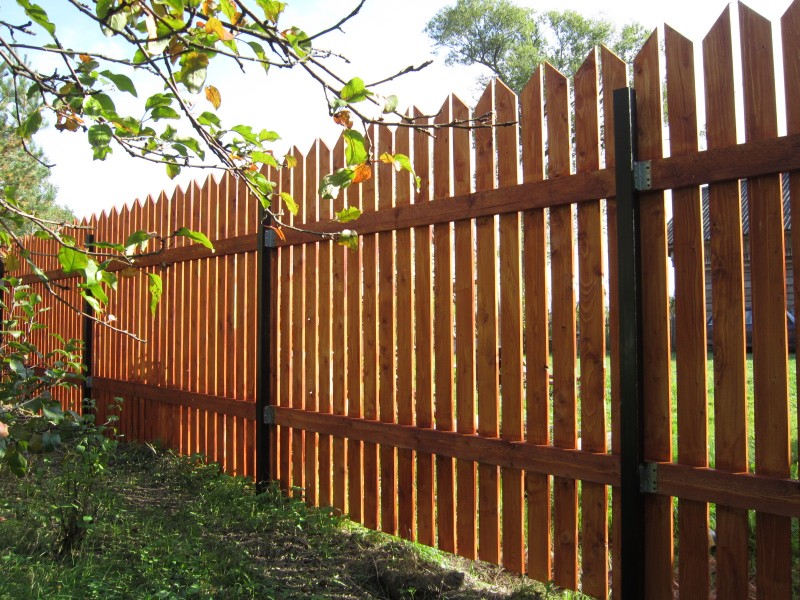
Natural material in harmony with the environment.
Conclusion
There are many options for constructing a wooden fence around a private mansion, a summer residence, any enterprise. They are distinguished by the speed of construction, the level of aesthetics of the appearance of the finished structure. The most relevant options for fences are constantly published on the Internet, on sites relating to construction and country houses.
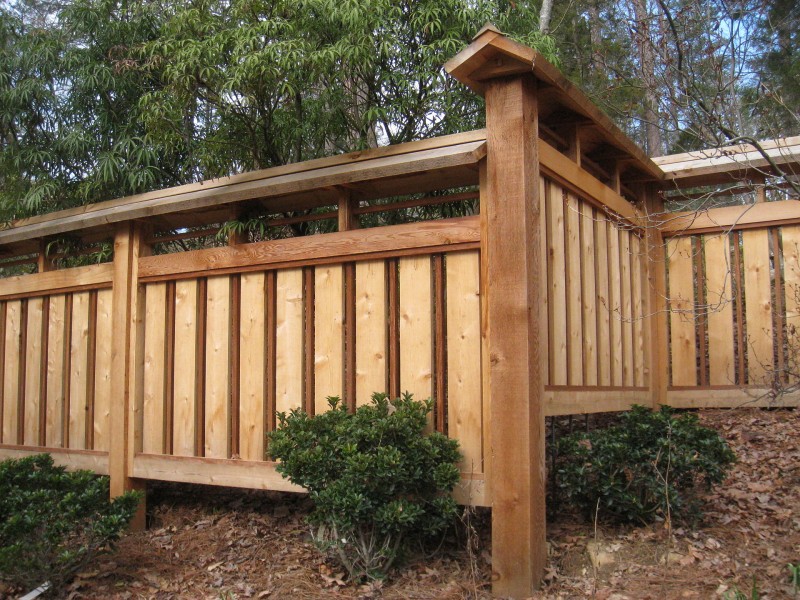
Wooden fences are so different in appearance that in fact they are united by only one thing - the wood material from which they are made.
VIDEO: Variants of beautiful wooden fences.
